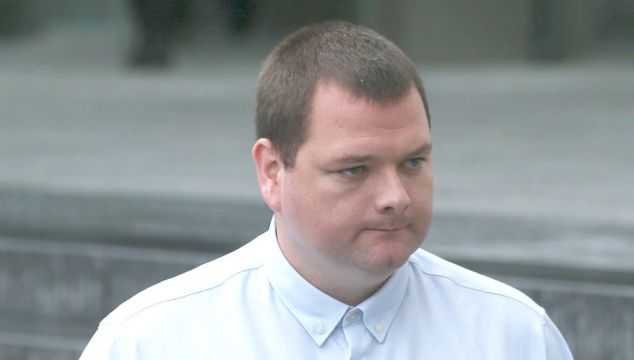A man accused of stabbing another man to death after being attacked on a Dublin street would be guilty of no crime if he used reasonable force in self-defence, a judge has told a trial jury.
At the Central Criminal Court, Ms Justice Mary Ellen Ring also told the 10-person jury that if the accused man, Andrew Lacey, knowingly used more force than was necessary to defend himself when he stabbed Derek Reddin in the heart, then he is guilty of murder.
The judge told the jury that manslaughter is also a possible verdict if Mr Lacey honestly believed the force he used was necessary, but the jury finds that he used more force than was objectively necessary.
Mr Lacey (35), of Riverside, Loughlinstown, Co Dublin, has pleaded not guilty to the murder of Derek Reddin (31) at Loughlinstown Drive on a date unknown between October 14th and October 15th, 2019, both dates inclusive.
The court has heard that there was an ongoing feud between associates of Mr Reddin and Mr Lacey and on the night Mr Reddin and his cousin David Howard were "laying in wait" for Mr Lacey.
CCTV footage showed Mr Lacey with his friend Mark Roe on Loughlinstown Drive shortly before midnight on their way home from the pub having bought food from a local takeaway when they encountered Mr Reddin and Mr Howard.
Mr Lacey has alleged that Mr Reddin assaulted him with a baseball bat and that he, Mr Lacey, produced a knife from his pocket to "repel" Mr Reddin and Mr Howard.
The accused took the stand during his trial and said that after he, Mr Lacey, took out the knife, Mr Reddin "lunged" at him with the baseball bat resulting in a "scuffle" between them.
Mr Lacey said he did not realise he had inflicted the fatal stab wound to Mr Reddin's chest that penetrated his heart.
Force
The prosecution alleges that Mr Lacey used more force than was reasonably necessary, also alleging that he knew the force was not necessary.
In her closing speech to the jury, Roisin Lacey SC, for the Director of Public Prosecutions, reminded the jury of Mr Howard's description of Mr Lacey "straddling" Mr Reddin on the ground and "digging the knife into him".
Dominic McGinn SC, for Mr Lacey, told the jury there is a reasonable possibility that Mr Howard lied and if he did, the prosecution's case "falls apart".
Ms Justice Ring told the jury that for a finding of murder, the prosecution must prove beyond a reasonable doubt that Mr Lacey intended to kill or to cause serious harm when he stabbed Mr Reddin.
However, she said that if you kill somebody but are acting in reasonable self-defence, that killing is not unlawful.
Quoting another judge's comments, she said: "A person is entitled to protect himself from unlawful attack. If in doing so he uses no more force than is reasonably necessary, he is acting lawfully and commits no crime even though he killed his assailant."
If he used more force than was reasonably necessary, the killing would be unlawful, but the jury would then have to consider whether Mr Lacey honestly believed his actions were necessary, the judge noted.
If that were the case, Mr Lacey would be guilty of manslaughter, and if he killed Mr Reddin knowing that the force he was using was unnecessary for self-defence then he would be guilty of murder, she added.
The judge explained that Mr Lacey does not have to prove self-defence; the prosecution must disprove self-defence.
They must prove beyond a reasonable doubt that the force was excessive, and he did not believe it was necessary, in effect that he did not honestly believe the force he used when he stabbed Derek Reddin was necessary."
Threat
In deciding whether the force was reasonable, the jury must consider whether the threat was imminent, or whether Mr Lacey had an opportunity to retreat.
She reminded the jury that Mr Lacey said Mr Reddin came towards him with a baseball or metal bat and struck him twice to each side of the head before Mr Lacey took the knife from his pocket.
He said he was doing so to "repel Mr Reddin, and they became engaged in a scuffle," and "he says he was not aware that he used the knife," the judge said.
Mr Howard's evidence was that Mr Reddin discarded the bat before the encounter with Mr Lacey, and Mr Howard said the accused held the knife in the air as soon as he saw Mr Reddin from across the street.
The judge added: "If you think he [Mr Lacey] may honestly have believed it was necessary to use force to defend himself, then you may consider whether the type and amount of force used was necessary."
She suggested that if a person shot someone after being slapped in the face, "a jury would have to consider whether it was objectively reasonable to take a gun out and shoot your assailant".
She asked the jury to look at the evidence in this case, including the evidence of the four men at the scene, witnesses nearby and medical and forensic experts.
The jury will also have to consider whether Mr Lacey's level of intoxication could have prevented him from having the necessary intent for murder.
The jury heard Mr Lacey had been drinking cider for about five hours in the Lough Inn before the encounter with Mr Reddin.
Ms Justice Ring said that if Mr Lacey did not have the necessary intent for murder because of the voluntary consumption of alcohol, he would still be guilty of a crime, but that would be manslaughter and not murder.
Ms Justice Ring will continue her charge to the jury of six men and four women on Thursday.







